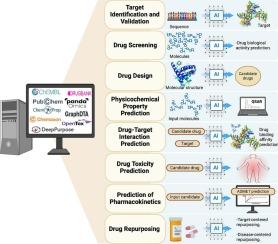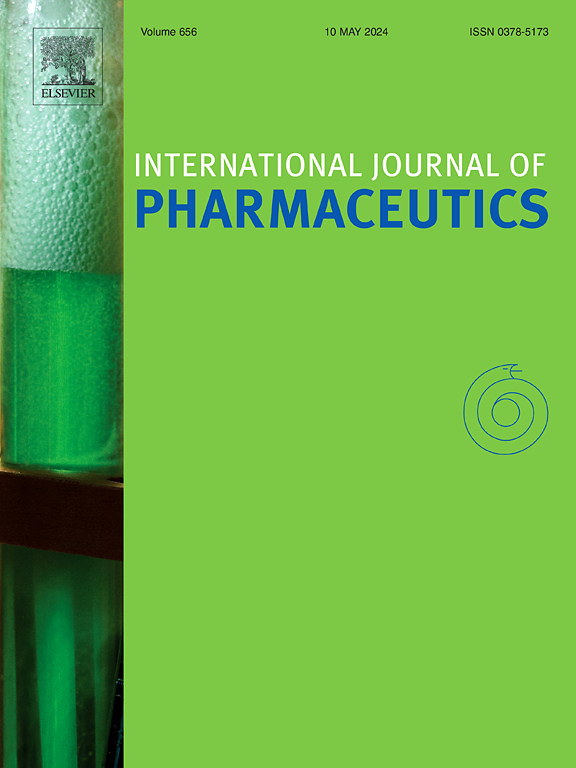药物发现中的人工智能革命:制药创新的范式转变。
IF 5.2
2区 医学
Q1 PHARMACOLOGY & PHARMACY
引用次数: 0
摘要
将人工智能(AI)集成到药物发现中已经彻底改变了药物创新,解决了传统方法的挑战,这些方法成本高、耗时长、失败率高。通过利用机器学习(ML)、深度学习(DL)和自然语言处理(NLP),人工智能增强了药物开发的各个阶段,包括目标识别、先导物优化、新药物设计和药物再利用。人工智能工具,如用于蛋白质结构预测的AlphaFold和用于基于结构的药物设计的AtomNet,大大加快了发现过程,提高了效率并降低了成本。Insilico Medicine设计的用于特发性肺纤维化的人工智能分子,以及BenevolentAI发现的用于治疗COVID-19的baricitinib等成功案例,都突显了人工智能的变革潜力。此外,人工智能还可以探索广阔的化学空间,优化临床试验,确定新的治疗靶点,为精准医疗铺平道路。然而,诸如有限的数据可访问性、不同数据集的集成、人工智能模型的可解释性以及伦理问题等挑战仍然是关键障碍。通过增强算法、标准化数据库和跨学科合作来克服这些限制是必不可少的。总体而言,人工智能继续重塑药物发现,缩短时间,提高成功率,并推动开发创新和可获得的疗法,以满足未满足的医疗需求。本文章由计算机程序翻译,如有差异,请以英文原文为准。

Artificial intelligence revolution in drug discovery: A paradigm shift in pharmaceutical innovation
Integrating artificial intelligence (AI) into drug discovery has revolutionized pharmaceutical innovation, addressing the challenges of traditional methods that are costly, time-consuming, and suffer from high failure rates. By utilizing machine learning (ML), deep learning (DL), and natural language processing (NLP), AI enhances various stages of drug development, including target identification, lead optimization, de novo drug design, and drug repurposing. AI tools, such as AlphaFold for protein structure prediction and AtomNet for structure-based drug design, have significantly accelerated the discovery process, improved efficiency and reduced costs. Success stories like Insilico Medicine’s AI-designed molecule for idiopathic pulmonary fibrosis and BenevolentAI’s identification of baricitinib for COVID-19 highlight AI’s transformative potential. Additionally, AI enables the exploration of vast chemical spaces, optimization of clinical trials, and the identification of novel therapeutic targets, paving the way for precision medicine. However, challenges such as limited data accessibility, integration of diverse datasets, interpretability of AI models, and ethical concerns remain critical hurdles. Overcoming these limitations through enhanced algorithms, standardized databases, and interdisciplinary collaboration is essential. Overall, AI continues to reshape drug discovery, reducing timelines, increasing success rates, and driving the development of innovative and accessible therapies for unmet medical needs.
求助全文
通过发布文献求助,成功后即可免费获取论文全文。
去求助
来源期刊
CiteScore
10.70
自引率
8.60%
发文量
951
审稿时长
72 days
期刊介绍:
The International Journal of Pharmaceutics is the third most cited journal in the "Pharmacy & Pharmacology" category out of 366 journals, being the true home for pharmaceutical scientists concerned with the physical, chemical and biological properties of devices and delivery systems for drugs, vaccines and biologicals, including their design, manufacture and evaluation. This includes evaluation of the properties of drugs, excipients such as surfactants and polymers and novel materials. The journal has special sections on pharmaceutical nanotechnology and personalized medicines, and publishes research papers, reviews, commentaries and letters to the editor as well as special issues.

 求助内容:
求助内容: 应助结果提醒方式:
应助结果提醒方式:


